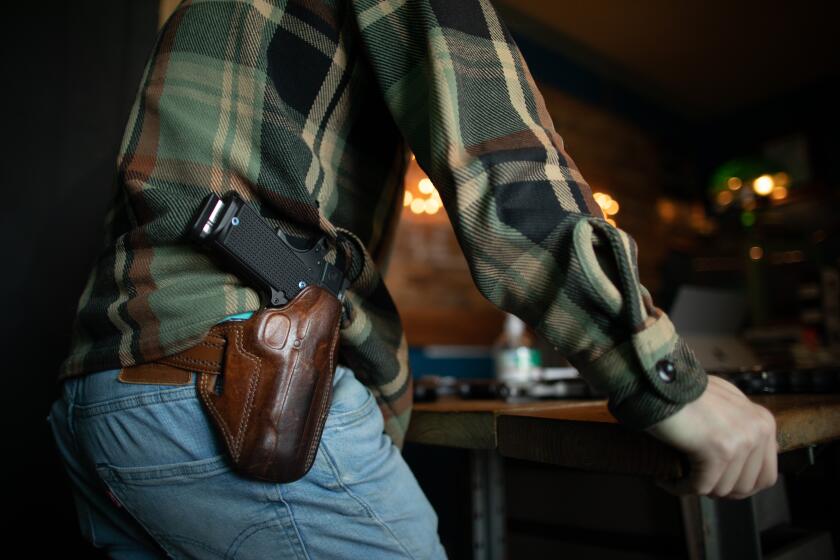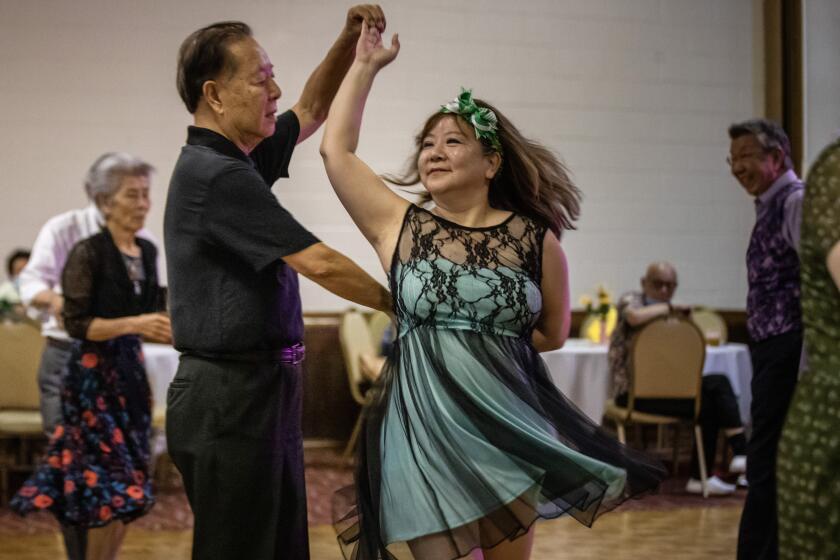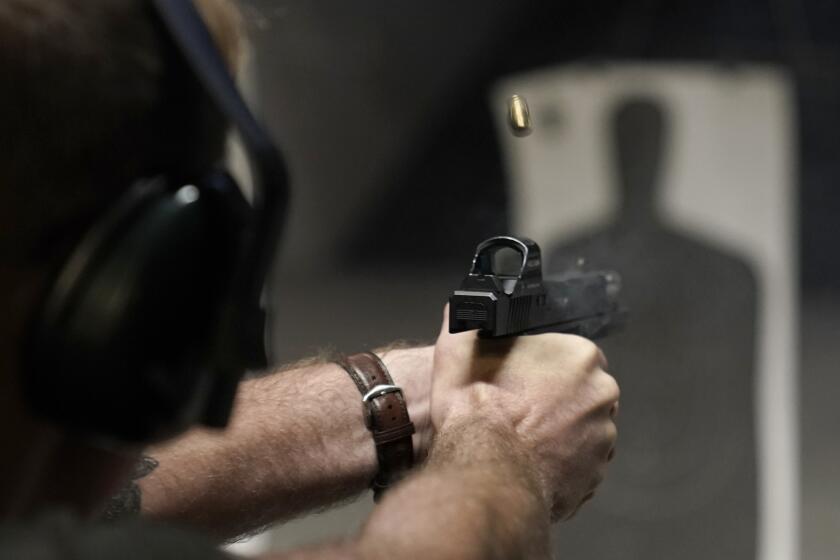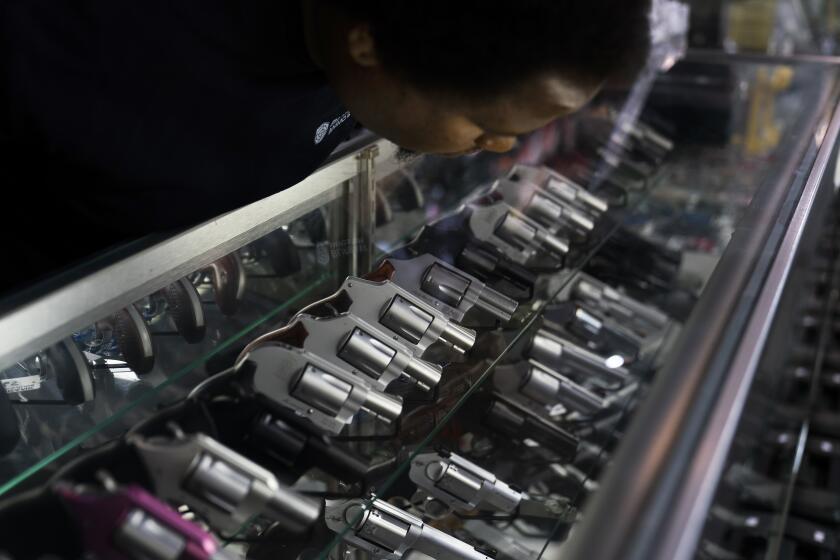Judges let new California ban on guns in many public places take effect amid legal fight
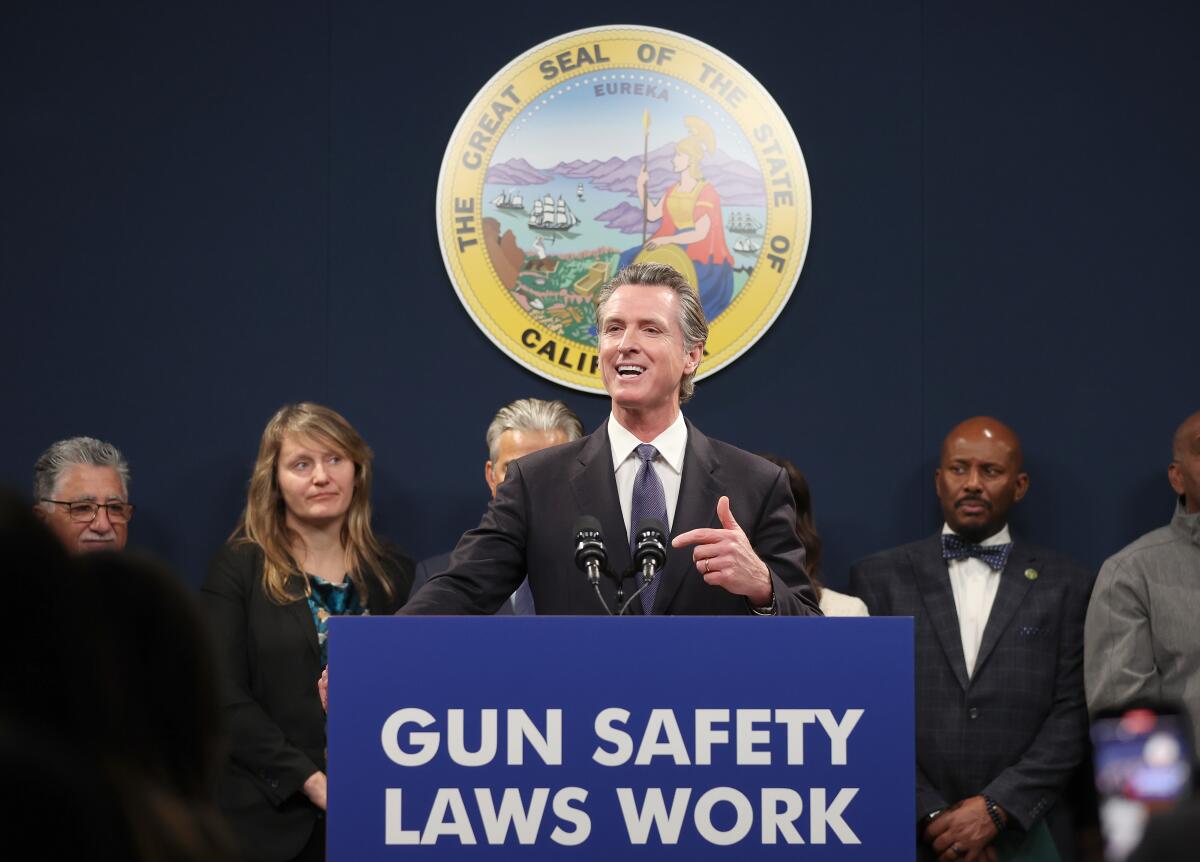
A new California law barring licensed gun holders from carrying their firearms into an array of public places took effect Monday despite an ongoing legal challenge to its legitimacy.
A federal district judge last month rejected major portions of the law as unconstitutional and issued an injunction blocking it from taking effect while gun holders challenge it in court. But a federal appeals court put a temporary hold on that injunction Saturday.
Whether the law will ultimately survive the court challenge and remain in place in the long run remains uncertain — but for now the state’s licensed gun holders must abide by it.
The law, known as Senate Bill 2, precludes licensed gun carriers from having their firearms at public gatherings and special events, in parks and playgrounds, in stadiums, arenas and casinos, in medical facilities, religious institutions and financial institutions, on public transportation and in many parking areas, among other spaces.
Democrats send Gov. Gavin Newsom a bill to restrict who can obtain a concealed-carry permit in California, teeing up a possible Supreme Court fight.
It also stops them from carrying their firearms anywhere that liquor is sold and consumed and in any other private commercial spaces where the owners have not explicitly posted a sign to the contrary.
The law applies to concealed-carry permit holders in major metropolitan centers such as Los Angeles. But it also affects open-carry permit holders in rural, less populated parts of the state.
State leaders and advocates for greater gun control say the restrictions are just common sense and only apply to “sensitive places” where guns have no business being. Many gun holders, including the plaintiffs in the case, allege the law is so onerous — the list of restricted spaces so long — that it essentially makes it impossible for them to carry their firearms outside their homes.
The law was passed by the California Legislature and signed by Gov. Gavin Newsom last year in response to several mass shootings, including in Half Moon Bay and Monterey Park, and a U.S. Supreme Court decision in 2022 that reined in gun control measures nationally.
Six months after a mass shooting in Monterey Park that left 11 dead, survivors and fellow dancers have come together, forging new relationships.
The Supreme Court’s ruling in New York State Rifle & Pistol Assn. vs. Bruen held that strict limits on concealed carry permits in states like New York and California amounted to unconstitutional restraints on people’s right to self-defense, and that gun laws that aren’t deeply rooted in American history, or analogous to some historical law, are generally unconstitutional.
It also said that certain laws, including those that bar guns in sensitive places such as court rooms and schools, remained valid.
In response, California and other liberal states scrambled to devise new gun laws that comported with Bruen enough to survive new legal challenges. State Sen. Anthony Portantino (D-Burbank) introduced SB 2 as a means of extending the list of “sensitive places” under California law. Gun holders sued in protest.
A new California law that would bar licensed gun holders from carrying firearms into many public places will not go into full effect on Jan. 1 as scheduled.
On Dec. 20, U.S. District Judge Cormac J. Carney sided with the gun holders, writing that the law’s “coverage is sweeping, repugnant to the Second Amendment, and openly defiant of the Supreme Court.”
Rather than a clever workaround to Bruen, Carney, an appointee of President George W. Bush, said the new law clearly clashed with it. He said an injunction blocking it was warranted because those suing the state were likely to win their case and would suffer “irreparable harm” if they weren’t allowed to carry their firearms in the meantime.
But on Dec. 22, California Atty. Gen. Rob Bonta’s office filed an emergency motion asking the U.S. 9th Circuit Court of Appeals to halt or “stay” Carney’s decision pending an appeal.
“A stay is necessary to allow the State to enforce the enjoined provisions of this statute, which the Legislature has determined will reduce gun violence in certain sensitive locations involving the exercise of other constitutional rights or that draw particularly vulnerable populations, like children,” Bonta’s office wrote.
A three-judge panel of the 9th Circuit — comprised of judges Johnnie B. Rawlinson, Jay S. Bybee and Andrew D. Hurwitz — granted Bonta’s request, but noted the stay was administrative only and held no sway over another, forthcoming decision from the appellate court on the merits of the issue.
Rawlinson was appointed by President Clinton, Bybee by President George W. Bush, and Hurwitz by President Obama.
Newsom issued a statement praising the appellate panel’s temporary order and calling Carney’s ruling in the lower court “dangerous.”
A California law that bars people under restraining orders from possessing firearms survived a federal court challenge Thursday.
“Californians overwhelmingly support efforts to ensure that places like hospitals, libraries and children’s playgrounds remain safe and free from guns,” Newsom said.
Chuck Michel, an attorney for the gun holders in the case, said Monday that he will be asking the appellate court for an expedited decision on the merits. He said he believes that decision will again block the new state law as an illegitimate “ruse” to get around Bruen.
He said every day the law is in effect harms his permit-holding clients.
“The people who have these licenses have them for a reason,” he said. “Some of them are in direct threat, and now they are limited in their ability to protect themselves and their families.”
More to Read
Sign up for Essential California
The most important California stories and recommendations in your inbox every morning.
You may occasionally receive promotional content from the Los Angeles Times.
